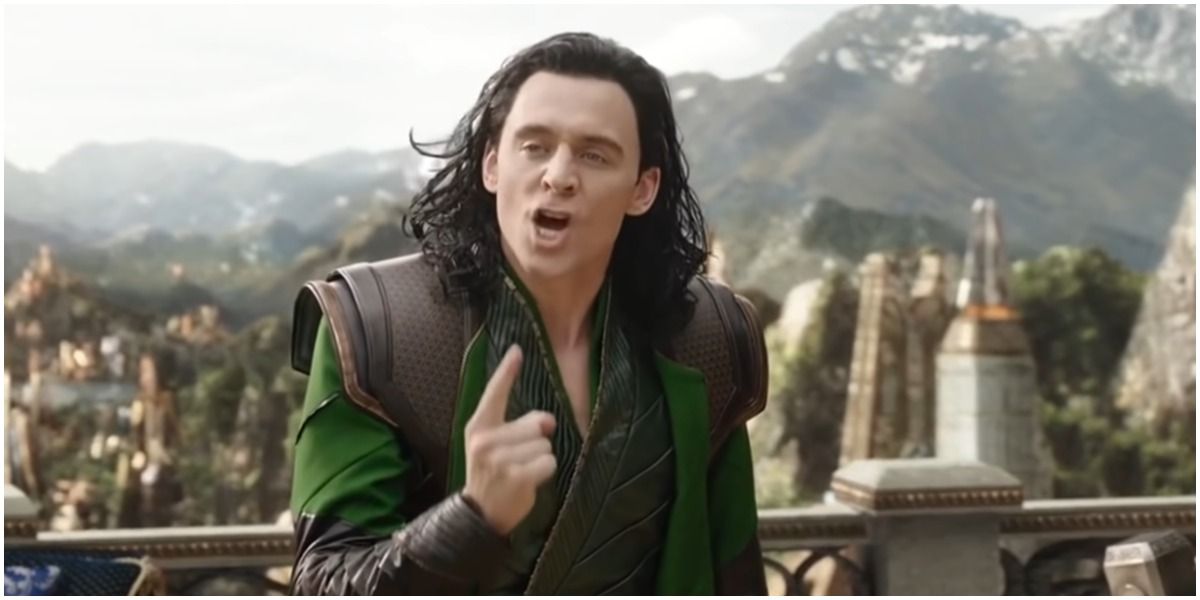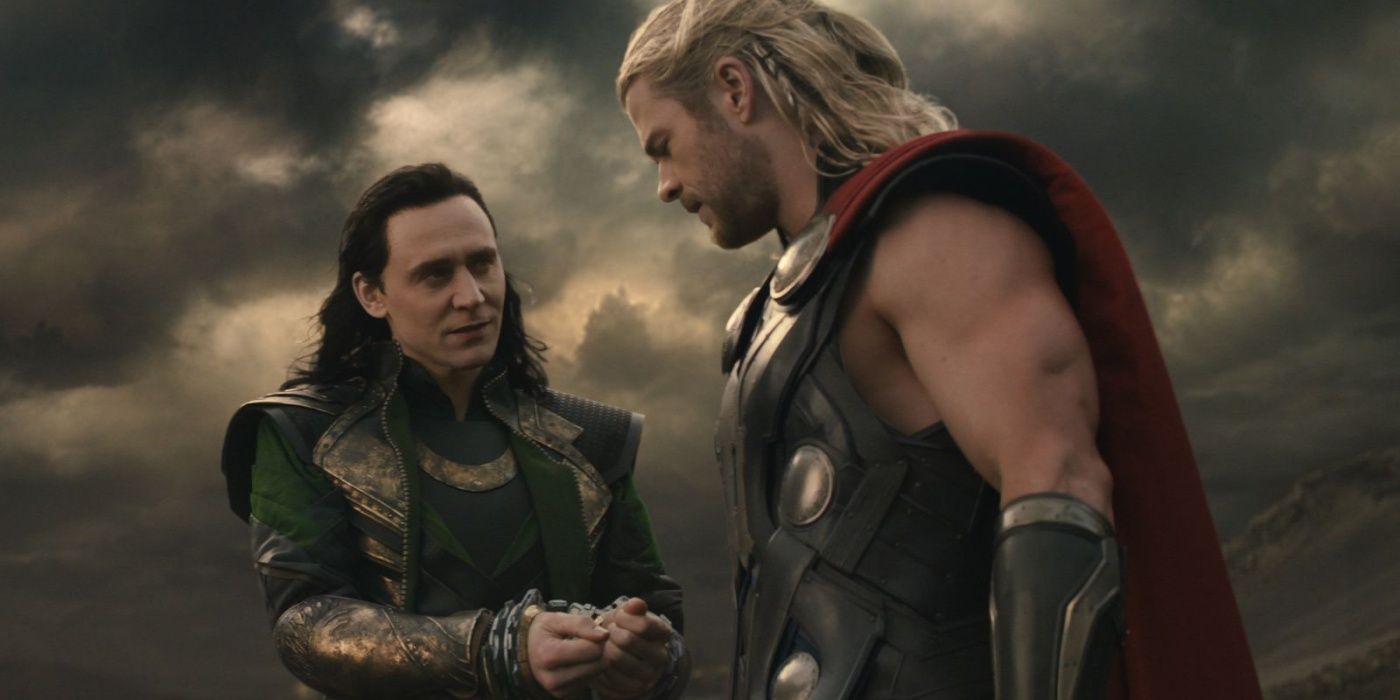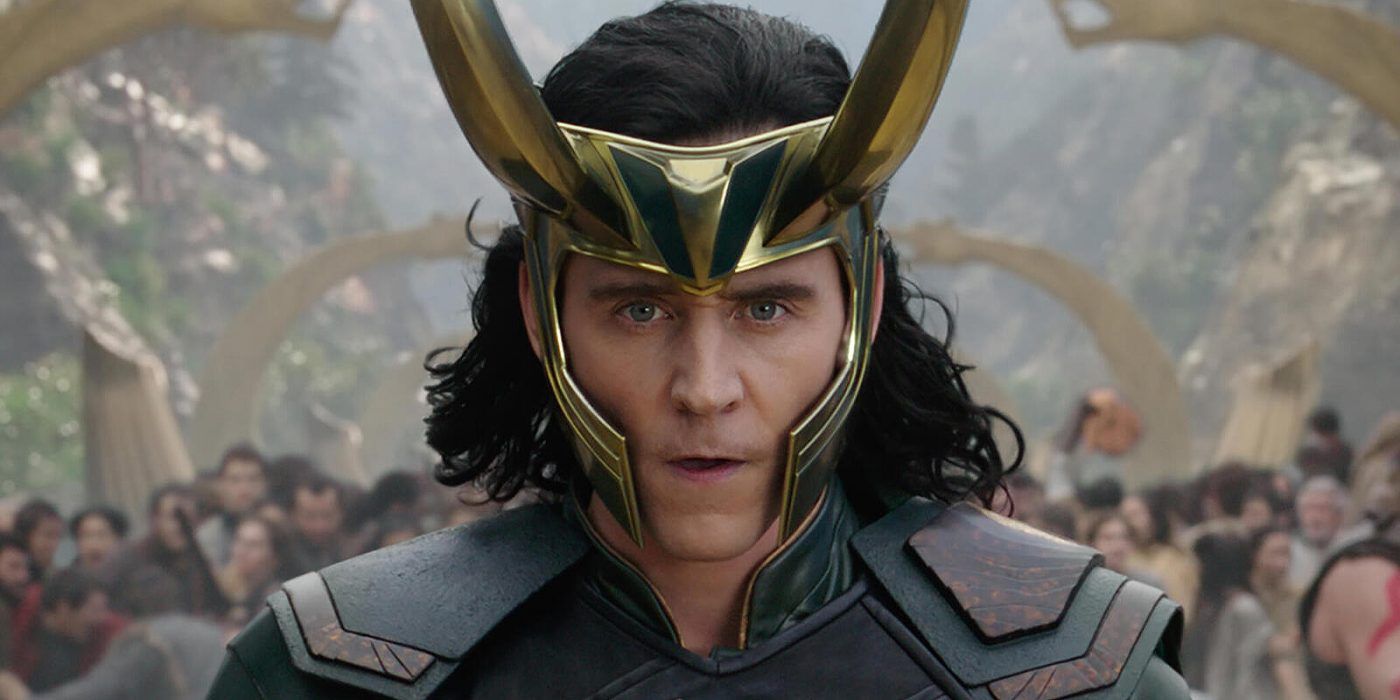Characters based on ancient myth are extremely common in modern media, adapting ancient gods and heroes into current stories. Cultural narratives begin to form surrounding these larger-than-life characters, often resulting in substantial changes from their source material which are adopted as the new standard for their presentation. Among the pantheon of ancient gods adapted for the modern-day, perhaps the best translation is the Marvel Cinematic Universe take on Loki.
Loki Odinson, portrayed by Tom Hiddleston, first appeared in 2011's Thor and went on to appear in both of its sequels, three Avengers films and his own upcoming series. Loki is the adopted brother of Thor, raised by Odin on Asgard. Odin slayed Loki's birth father, the frost giant king Laufey, then took the baby in as his own. He is the primary antagonist of Thor and 2012's The Avengers, and the deuteragonist of Thor: The Dark World and Thor: Ragnarok. He is cunning, imperious and self-serving, but often finds himself aiding the cause of the heroes when they need him most.
Loki Laufeyson was a late addition to the Norse mythological canon, scholars debate his first appearance, likely sometime in the 8th to 10th centuries. Loki is a member of the Aesir, a tribe of deities that includes Thor, Odin, and many more. The original myth is unclear as to how or why Loki entered the tribe of the gods, as his father was Fárbauti, a frost giant and his mother was Laufey, who has a questionable origin. Loki is mischievous, often causing problems for himself and others, but also revered for his shrewd intellect. The Loki of ancient myth often plays the role of villain and of hero.
There are many similarities and many differences present in the two portrayals of Loki, and while Marvel does not always adhere strictly to the lore regarding character names or backgrounds, where the MCU's God of Mischief really shines as an adaptation is in his personality and his role in the narrative. Hiddleston's performance has by now been directed and his lines written by many different creators, but throughout all of the disparate films, Loki's personality has been both consistent and prominent. MCU Loki is just as crafty as his ancient counterpart, and just as often falls prey to the consequences of his actions.
The most famous myth which centrally features Loki is the tale of Ragnarok, in which Loki sets into motion the end of all things and fights with an army against the gods. In most understandings of this tale, Loki is a villain who slays Baldur out of boredom and pettiness, which leads to a back and forth between Loki's family and the Aesir. This level of malevolence would seem slightly alien to Loki's presentation in the MCU, but it speaks to a reoccurring facet of his personality which is diligently maintained in the films.
Loki is routinely and almost comically unaware of the consequences of his actions, often enacting universe-shaping drama to gain ground in family squabbles. Loki's invasion of Earth in The Avengers seems to be largely motivated by vengeance and pettiness towards his brother Thor. Out of these shallow motivators, Loki kills hundreds, allies with a tremendously evil force and leads an army against an innocent planet, resulting in his defeat and imprisonment. This story is analogous to Loki's role in Ragnarok, he massively overreaches over a petty dispute, allies with dangerous forces outside his control, and winds up beaten and imprisoned for his trouble.
Other stories from Norse mythology cast Loki as an ally to the protagonists, in the tale of Freya's unusual wedding for example. In this classic, Thor's hammer Mjolnir is stolen by a giant who demands to marry Freya the beautiful queen of the gods. Loki, in a rare twist, is completely uninvolved in causing the problem, but is entreated to aid in solving it. His grand plan to retrieve the hammer is simple: he convinces Thor to dress in women's clothing and cover his face with a bridal veil, then travel to the giant's home and retrieve the hammer in person.
Loki accompanies Thor, having changed his shape into that of a young handmaiden. They join the giant for dinner, during which Loki covers for Thor's every failure of manners with quick wit and clever lies. After the exchange, Thor is given back his hammer, which he uses to kill the giant in a single blow. Loki is an unquestioned hero in this tale, using his shrewd intellect to aid the gods in retrieving Thor's all-important hammer, even if he has to do it in a way Thor does not care for. This is most comparable to Thor and Loki's confrontation with the dark elf Malekith in Thor: The Dark World, wherein Loki uses trickery to aid the gods in defeating a threat he also has reason to oppose, but has no hand in causing.
Many other Norse myths see Loki as both the cause and the solution to substantial problems. Loki was once attacked by a giant who forces him to trade away Idun, the goddess who keeps the Aesir eternally young. Doing so dooms the entire pantheon to save himself, so he must be the one to defeat the giant and get Idun back. Loki does successfully outwit and outmaneuver the giant, winning the day and solving the crisis which he had just finished creating.
In Thor: Ragnarok, Loki seizes the throne of Asgard in disguise and lives in luxury for a while, which leads to Hela's attack. Loki is the one who summons Surtur, sacrificing his homeland to save its people and solving the problem he caused. He did this on the expectation of self-sacrifice but managed to save himself at the last moment. Loki, interestingly, is briefly presumed dead at the end of each of the three Thor films, which is a common aspect of adaptations of his character.
Loki is a complex character, motivated by petty emotional conflict as well as by mischief as a concept. He is the doer of good and of evil in seemingly random metrics. The Marvel comics which feature Loki tend to portray him a bit more straightforwardly, as a villain who wants to watch the world burn. The MCU's take on the God of Mischief might be the best mythology adaptation in the franchise, but it might also be the best adaptation of a Norse god in modern memory.



